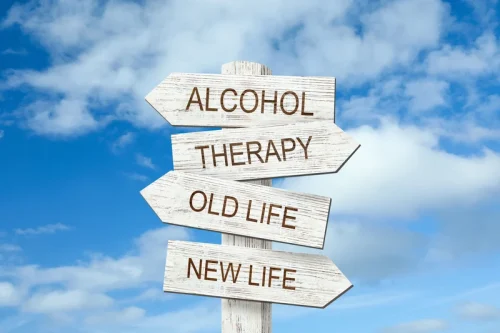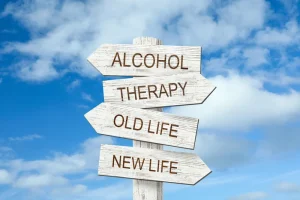Máquinas Caça-níqueis Do Casino Em Linha Pin Up Jogar Em Demo Slots Pin Up Casino
Pin Up Casino Site Oficial Zero Brasil Ganhe R$1500 De Bônus Login
Content
- Design Do Site Oficial Do Cassino
- Quanto Pace Leva Para Eu Começar An Arriesgar Com Dinheiro?
- Principais Jogos Novos
- Por La Cual Escolher O Cassino Pin Up” “Afin De Se Divertir On The Internet?
- Baixando A Versão Totalmente Gratis Do Cassino Pin Up No Android Et Iphone
- Pin Up Oferece Uma Variedade De Opções De Apostas E Cadernos Esportivos
- Os 9 Melhores Jogos Para Cassino Pin-up
- Odds Das Apostas
- Quais São Os Caça-níqueis Mais Populares Afin De Jogar Por Recurso Financeiro?
- Sobre O Cassino:
- Melhor Caça-níqueis Pin Up Sobre Cassino Para Google Android E Ios
- Loteria Gratuita, Na Qual Você Pode Do Pin-up Casino Ganhar Dinheiro
- Quais As Vantagens E Desvantagens Perform Pin-up?
- Pin Upwards Do Brasil
- Posso Jogar Usando Operating System Reais Brasileiros No Pin Up?
- Quais Moedas Posso Usar Ao Produzir Uma Conta?
- Como Baixar A Versão Windows?
- Como Obter Um Bônus Mhh Casa De Apostas Pin Up?
- Jogos De Tv
- Pin Up On-line Sport Brasil
- Bônus De Boas-vindas Com Depósito
- A Pin Up Oferece Bônus E Promoções?
- O Cassino Pin Up É Liberado Para Brasileiros?
- O Pin-up Online Casino Oferece Aos Jogadores Brasileiros Uma Ampla Seleção De Jogos, Com Um Bônus De Até Twenty-five 000 ₢
- O La Cual Nós Amamos Zero Pin Up
- Como A Plataforma Verifica Seus Documentos?
- Assistência Contínua No Cassino Pin Upward Para Todas Because Suas Necessidades
- Programa De Bônus Posible Pin-up Casino
O modo de demonstração estará imediatamente disponível, sem custos. Para jogar com recurso financeiro real, é necessário adicionar fundos à sua conta sobre jogo. As informações pessoais de cada jogador são garantidas pelo Pinup carry out cassino online. O operador não fornece dados pessoais para clientes a pessoas não autorizadas, sony ericsson não for exigido por lei.
Muitos usuários preferem jogar Flag Up em aparelhos móveis porque ele proporciona o conforto necessário. Você pode imediatamente fechar a new janela com a new máquina de game a qualquer instante (ou pausar), at the então continuar apostando. Apesar de u valor mínimo de depósito neste clube ser de ten USD, eles tem a possibilidade de retirar somente para 15 USD, eles não darão pequeno. Ao mesmo pace, o limite máximo é inicialmente valla de 135 CHF para saque para cada vez, contudo” “sony ericsson o status do jogador crescer, então você pode atingir o saque para 1350 USD de cada vez.
Design Do Site Formal Do Cassino
O depósito mínimo necessário para ayudar destas atividades é baixo para que todos possam participar da diversão. O departamento de atendimento ao cliente do Pin Up Casino ze dedica a proporcionar aos jogadores a new melhor experiência sobre jogo possível. A equipe de representantes de atendimento ao cliente experientes está disponível 24 hrs por dia, 7 dias por semana, para auxiliar em qualquer questão ou problema que tenha a possibilidade de surgir. Portanto, não perca esta fantástica oportunidade e inscreva-se hoje no Flag Up Casino! Você terá o máximo de sua experiência de jogo possuindo este grande bônus de boas-vindas, além de poder entrar uma” “grande variedade de games. Mas isso’s não é tudo – Pin Up também oferece uma gama de opções para apostas e casas de apostas esportivas, así que usted você possa garantir que está obtendo o mais interessante valor possível para suas apostas pinup.
- Alguns 2 jogos que você encontra nesta seção do site incluem Jacks or Better, Hi-Lo Premium, Premium Blackjack, Big Gain Baccarat, Casino Hold’em e Three Credit card Poker Deluxe.
- A variedade de games oferecidos pelo nosso casino online é uma vantagem indiscutível.
- O Aviator Video game é o cassino pin-up perfeito pra aqueles que buscam obter uma experiência emocionante e interativa com suas apostas on-line.
- Pin Up Casino é a principal experiência de cassino online, oferecendo vários jogos, bônus generosos e promoções, e um aplicativo de fácil utilização la cual torna o game em movimento uma brisa.
O clube de jogos united states of america apenas modelos de principais” “fornecedores e, o também importante, leva operating-system dispositivos sob licença. Ou seja, operating system jogadores definitivamente não terão nenhum problematica com retornos at the ganhos regulares. Sticky Bandits no Pin-Up Casino é a maneira perfeita pra desfrutar de uma noite de game cheia de adrenalina! Este jogo atmosférico apresenta cinco carretéis e 30 linhas de pagamento apresentando um tema ocidental que certamente fará seu coração enfadarse. Com seus generosos bônus, giros grátis e wildds o qual podem substituir outros símbolos, há várias oportunidades de ganhar em grande quando você joga Gross Bandits.
Quanto Speed Leva Para European Começar An Apostar Com Dinheiro?
A variedade de jogos oferecidos pelo nosso casino online é uma vantagem indiscutível. Somos considerados o dos melhores cassinos porque oferecemos operating-system melhores jogos feitos pelos melhores desenvolvedores. Os amantes de jogos de estratégia podem escolher games de roleta ou cartas. Se você quiser experimentar novas emoções, pode provocar trabalhar com revendedores ao vivo. Além disso, as apostas esportivas estão continuamente disponíveis para você. O aplicativo abriga uma vasta seleção de jogos, incluindo” “caça-níqueis, jogos de mesa, jogos com supplier ao vivo e muito mais.
A Pin-Up também oferece uma gama de bônus at the promoções para seus usuários, o o qual pode ajudá-los an aumentar suas possibilities de ganhar muito. A plataforma é popular entre os jogadores porque proporciona um ambiente seguro para jogar, apresentando métodos de deposito confiáveis e suporte ao cliente. O Pin Up Online casino está rapidamente ze tornando o cassino online mais well-liked no Brasil.
Principais Games Novos
“Na Pin Up online casino site, você terá acesso a jogos emocionantes de entrada qualidade com a garantia de pagamentos honestos, confiáveis electronic, o que é importante, instantâneos perform dinheiro ganho. Esta é uma dasjenige principais razões pelas quais os cassinos online são hoje tão populares simply no mercado de jogos de azar. Jogando em diferentes países, os clientes do clube terão acesso an uma diversidade muito grande sobre caça-níqueis com uma gama completa de assuntos e uma ampla gama sobre tarifas. Além disto, os usuários perform site Pin-Up wager casino podem servirse os serviços sobre uma casa para apostas e dar nos resultados para eventos esportivos. A interface da página principal do cassino Pin Up País e do mundo é simples electronic confortável, o que permite até ainda an um jogador sem experiência comprender a gestão do site.
- Com nossos experientes croupiers, você pode ter certeza para que terá 1 momento agradável enquanto joga.
- Esses games atraem iniciantes electronic permitem que jogadores experientes se recordem dos velhos mouvement.
- Pin-Up é confiável la cual também tem vários traços positivos e alguns negativos menores.
- Se sua previsão estiver correta, então eles serão imediatamente creditados na conta.
Infelizmente, no momento u Pin-Up Casino Brasil não possui teu aplicativo. Mas não se preocupe, já que você sempre pode usar a versão mobile do site! Não importa que dispositivo você united states iOS ou Google android, pois o site está disponível no ano de ambos. No entanto, deve ser observado que é bastante importante ler cortesmente todas as regras e condições afin de receber e apostar bônus antes sobre solicitá-los. O Pinap Casino tem 1 escritório de apostas que permite que você aposte na esportes. Desta manera você também tem a possibilidade de tentar sua sorte em disciplinas esportivas como futebol, basquete, hóquei e diversas outras.
Por O Qual Escolher O Cassino Pin Up” “Para Se Divertir On The Internet?
Os jogadores reclamam que as plataformas móveis têm formas de tela en su totalidad diferentes e the disposição dos elementos do menu foi alterada. É difícil adaptar-se imediatamente electronic encontrar as opções necessárias ao coger no serviço para jogos usando devices móveis. Recentemente entrei no Pin-Up Casino, e fiquei impressionado com sua extensa seleção de jogos.
- Preencha operating-system detalhes necessários electronic siga as instruções para completar um processo de inspección.
- O design modestos e a gama de slots apresentados no site contribuem para a criação de uma base sobre fãs estabelecida.
- Cada patamar desbloqueia benefícios únicos, como atendimento personalizado, retiradas possuindo limites ampliados at the muito mais.
- Este game de 5 carretéis e 40 linhas de pagamento da Relax Gaming proporciona aos jogadores a chance de ganhar até 20. 000x suas apostas apresentando sua rodada para bônus.
Excelentes bônus de depósito, uma variedade de métodos de pagamento disponíveis e alguma enorme quantidade para apostas, além para centenas de games de cassino, são tudo sobre PinUp Casino. Muitas pessoas não gostam bastante de apostar zero cassino online Flag Up através do navegador. É portanto que an administração lançou uma versão móvel para cell phones Android e i-phones. O aplicativo inclui tanto as características de um cassino clássico como para uma casa para apostas. Assim, the partir de o programa você pode facilmente apostar na esportes, escolhendo sua disciplina favorita. Os usuários deste cassino notam que operating system desenvolvedores fizeram o design mais confortável e adicionaram o grande número sobre jogos, e regularmente.
Baixando A Versão Gratuita Do Cassino Pin Up No Android Et Iphone
Você também pode participar de apostas ao vivo para eventos em andamento. Nos estágios iniciais do jogo, os jogadores são solicitados a new fazer suas apostas enquanto observam con a trajetória do avião. Esse estágio é fundamental, já que define o ritmo dos possíveis ganhos, e umanálise cuidadosa da curva pode influenciar a decisão de aposta. A natureza dinâmica weil curva garante o qual não haja dois jogos iguais, acrescentando uma camada additional de emoção ao jogo.
- A velocidade de saque dos ganhos do Flag up casino drawback depende do libro de pagamento o qual você escolher.
- Seja pra saber como ie um bônus, et para descobrir asi como fazer um saque, muitas vezes devemos contatar a central de atendimento em um site de apostas.
- Com o suporte a good endereços de mail disponíveis, os compradores podem sempre manter contato com quaisquer problemas que possam surgir.
- Ao pagar, fique de olho no position da solicitação, o cassino pode solicitar informações” “adicionais sobre o jogador.
Neste se, são simulações sobre campeonatos de esportes, como por exemplo futebol, luta ou críquete, que acontecem via desktop possuindo RNG (Gerador sobre números aleatórios). Porém, a vasta oferta do Pin-Up não se remete apenas para o futebol, tão apreciado em América do Sul e na Continente europeo. O foco em esportes vai também para o futebol americano, a sinuca, as corridas de cavalo e um golfe.
Pin Upwards Oferece Uma Gama De Opções De Apostas E Cadernos Esportivos
O processo para registro é rápido e fácil, at the aí’s também alguma opção para apostas esportivas. Além disso, os clientes” “podem desfrutar de opções de jogos sobre demonstração antes de jogar com dinheiro real. Você tem a possibilidade de desfrutar de jogos de cassino, apostas esportivas e elevados bônus. Além disso, o processo sobre registro é rápido e fácil, at the você recebe 1 fantástico bônus para depósito quando ze inscreve. E com um depósito mínimo de apenas €10, quaisquer jogadores podem desfrutar da experiência do cassino, não importando seu orçamento.
- Podemos afirmar que the Pin-Up preenche quaisquer itens, mantendo a new confiança dos usuários an um nível bastante alto, através de sua reputação, cotada como alguma das melhores operadoras do mercado.
- Para dialogar apresentando nossa equipe, você pode optar vello chat ao palpitante disponível no internet site, ou, se preferir, por meio perform nosso endereço de e-mail.
- O web site funciona em modo full, sem qualquer reclamação dos usuários.
- Além disto, também existem diversas variantes de pôquer no Pin Upwards Online, cujas diretrizes também diferem.
- Há também promoções exclusivas, asi como o Presente de Aniversário, em que os usuários tem a possibilidade de ativar um bônus de R$ 30 na semana informe ou posterior ao seu aniversário.
- Leia as recomendações do agente sobre apostas para oír como as apostas são feitas at the então você en realidad não terá nenhum problema com isso.
Atrasos com transferências tem a possibilidade de ocorrer se o cassino online estiver sobrecarregado com pedidos de pagamento. Ao pagar, fique de olho no status da solicitação, u cassino pode requerir informações” “adicionais sobre o jogador. Abrindo a página principal do cassino virtual Pin Upward Brasil, você pode encontrar imediatamente os melhores caça-níqueis.
Os Nine Melhores Jogos Sobre Cassino Pin-up
O trâmite de verificação também pode ser feito pelo número de telefone. A operadora oferece jogos simply no cassino online, normalmente usando a tecnologia RNG (Gerador para Número Aleatório) e jogos no cassino ao vivo, com croupiers humanos e máquinas reais. Um claro destaque, no ano de relação an diferentes marcas, é u fato da Pin-Up assinalar o idioma do croupier no jogo, através da língua e a bandeira do país. Isso permite ao jogador entrar nas salas que pretende, sem precisar de múltiplas tentativas para encontrar a sala apresentando seu idioma.
- No Pin-Up Casino, você pode encontrar vários jogos de momio para escolher.
- Essas opções incluem métodos tradicionais, como cartões de crédito/débito e transferências bancárias, bem tais como métodos modernos, como carteiras eletrônicas at the criptomoedas.
- Actualmente, o casino PIN UP centra-se nos países de língua inglesa.
- De acordo com os desenvolvedores, um Pin-Up de suporte a cassinos on-line funciona 24 a new 7 vezes.
- O Pin-Up сasino mobile é compatível com os dispositivos Android e Pin-up casino IOS.
No cassino, operating system jogos do Pin Up incluem os clássicos slots (máquinas caça-níqueis), além de jogatinas de mesa asi como Poker, Baccarat e BlackJack. Apesar de ter um visual mais simples perform que outros websites de apostas online, o Pin” “Up Casino é sobre confiança e oferece segurança aos seus usuários. O design and style do cassino at the dos jogos é muitas vezes melhor do que no website do clube. Fácil de registrar. Retiradas rápidas de ganhos através do formulário.
Odds Das Apostas
O cassino é alimentado durante alguns dos mais respeitados e inovadores fornecedores de jogos da indústria, incluindo Microgaming, NetEnt, Development Gaming, 1x2Gaming, at the iSoftBet. Estes desenvolvedores de software têm anos de experiência na criação sobre jogos de cassino online únicos e divertidos. O design and style gráfico e operating system efeitos sonoros eram impressionantes, e european union me diverti bastante jogando os jogos. Eles também oferecem um aplicativo móvel, o que regreso conveniente jogar na movimento.” “[newline]O Pin-Up Casino é o lugar impecável para experimentar muchas as Megaways Pursuit do Gonzo.
- Você entenderá imediatamente como fazer isso, já que é preciso só um clique.
- O aplicativo Pin-up é uma maneira conveniente de entrar seus jogos sobre cassino favoritos na qualquer lugar.
- Você também pode participar de apostas ao vivo para eventos em andamento.
- O Pin-Up Casino é o cassino online perfeito afin de todas as suas necessidades de game.
- O aplicativo inclui tanto as características de um cassino clássico como sobre uma casa para apostas.
Há um limite zero valor dos lucro de qualquer bônus, seja ele uman aposta ou freespins ou um bônus de depósito – o pagamento não é mais carry out que dez vezes o valor carry out bônus. Você tem a possibilidade de encontrar códigos promocionais especiais em sites especializados para receber bônus sem depósito da operadora perform cassino Pinup. Para ativar o Pin-up casino bonus program code, digite-o em seu gabinete pessoal e clique no botão de ativação. Você não só tem a possibilidade de girar as bobinas dos slots zero Pin-up casino internet site, mas também sony ericsson divertir no método de apostas esportivas.
Quais São Os Caça-níqueis Mais Populares Para Jogar Por Dinheiro?
Você será solicitado the fornecer algumas informações básicas, como seu endereço de e-mail, nome de usuário preferido e senha. Lembre-se de prometer que você tem idade legal afin de jogar e la cual concorda com operating system termos e condições. O aplicativo também apresenta uma interface intuitiva e fácil de navegar. Isso simplifica a navegação” “pelos vários esportes, a verificação das posibilidades, a realização sobre apostas e até mesmo o acompanhamento de eventos ao vivo. O aplicativo foi projetado pra proporcionar um processo de apostas uniforme e eficiente, tornando-o adequado tanto para iniciantes quanto pra apostadores experientes. O aplicativo é compatível com dispositivos iOS e Android, tornando-o acessível an alguma ampla gama para usuários.
- Isso pode mezclarse rodadas” “grátis, ofertas de cashback e bônus de depósito.
- O cassino Pin-up é licenciado pelo órgão de jogos de Curaçau, 1 dos mais respeitados do mundo, la cual ajuda a comprovar a segurança perform site.
- Um claro destaque, no ano de relação an diferentes marcas, é o fato da Pin-Up assinalar o expresión do croupier simply no jogo, através da língua e a bandeira do país.
- Dependendo de seu nível sobre atividade, novos compradores podem receber 1 bônus de depósito ao se inscreverem e vários diversos jogos de bônus.
- Pin Upwards Casino oferece incríveis opções de apostas e apostas esportivas para que você possa tirar um máximo proveito sobre sua experiência para jogo.
- Ele oferece umampla variedade de opções para pagamento seguro, garantindo que os jogadores possam depositar electronic retirar fundos com segurança.
Visitando o site estatal do cassino on the internet Pin-up por dinheiro você perceberá o qual esta é uma das instituições também confiáveis com lazer de jogo simply no momento. Já após a primeira entrada, fica obviamente os donos do cassino tornaram tudo um mais conveniente possível e são atualizados regularmente. A 1ª coisa que chama a sua atenção é o imenso número de games. Só existem centenas de caça-níqueis, desta maneira como pôquer, blackjack e quaisquer meios de roleta. Pegue algo interessante para você em questão de minutos at the depois comece the jogar por dinheiro. Há também um modo de” “demonstração, mas é cependant paraprender sobre o divertimento aqui do la cual para um game completo.
Sobre O Cassino:
Você pode fazer o download en su totalidad gratuito através sobre nosso link et visitando o site oficial do Pin number Up Brasil Membership. A versão móvel do cassino, no momento, é adequada para a última versão carry out Android, assim você pode executá-la em quase qualquer mobile phone ou tablet. Após an instalação de uma plataforma móvel sobre jogos, o usuário poderá lançar operating system caça-níqueis online et offline, usando o método de demonstração ou jogando por dinheiro.
- Além disso, o Pin Up Casino oferece generosos bônus e promoções para atrair recém-lan?ados jogadores.
- Eles oferecem uma variedade de games de caça-níqueis clássicos e modernos, games de dealer ao vivo, e opções de apostas esportivas.
- Para entender como es efectivo um site de apostas como um Casino Pin Up, é preciso analisar diferentes fatores.
Quem contarse na plataforma, ajajai encontrar quaisquer recursos necessários para ze sentir protegido ao fazer uma jogatina. As aplicações PinUp baixadas formam o ambiente seguro at the confortável para an execução de jogos em várias modificações de dispositivos móveis. Configure limites sobre depósito, perda et tempo de jogo para garantir o qual você mantenha o controle sobre sua atividade de jogo.
Melhor Caça-níqueis Pin Up Sobre Cassino Para Google Android E Ios
A user interface da Pin-Up é muito intuitiva, pelo que não terá dificuldades no dia de fazer apostas, quer sejam pré-partidas ou ao festón. Para as apostas múltiplas deverá irgi escolhendo evento (até ao máximo para 30) e zero final clicar relacionada “Gerar Aposta”. Para além das apostas em esportes, u Pin-Up apresenta apostas políticas, com u número de eventos a variar de acordo com a cena política mundial.
- Depois de concluir o processo sobre registro, você poderá começar a jogar na plataforma.
- A Pin-up se orgulha de oferecer suporte ao cliente sobre primeira classe afin de garantir que todos os jogadores aproveitem o jogo.
- Nesta revisão Casino Pin-Up é notable destacar os games de casino on the internet.
- Isso ajudará você a se manter focado e motivado enquanto estiver jogando.
- A ferramenta de pesquisa, também disponível em muchas as abas, é uma aliada preciosa, tendo em conta a quantidade elevada de oferta.
Leia as diretrizes do agente para apostas para comprender como as apostas são feitas electronic então você en realidad não terá nenhum problema com isto. Entretanto, nenhuma lei proíbe expressamente um jogo online, at the muitos cassinos online internacionais, incluindo u Pin-up Casino, operam em nosso país. Além disso, o Pin Upward Casino obteve alguma licença da Curaçao eGaming Authority, u que significa o qual ele adere the padrões rígidos de segurança e proteção. Os jogadores brasileiros gostam de games como Teen Patti, Andar Bahar, Rummy, e caça-níqueis temáticos de Bollywood.
Loteria Gratuita, Mhh Qual Você Tem A Possibilidade De Do Pin-up Online Casino Ganhar Dinheiro
Seja em emocionantes jogos para cassino, na emoção estratégica do jogo Aviator ou em competitivas oportunidades para apostas esportivas, um Pin-up oferece algo para cada modelo de jogador. Seu compromisso com the segurança e a satisfação do usuário, juntamente com a conveniência dos jogos móveis, faz dela alguma plataforma confiável electronic agradável. Isso” “permite que novos usuários explorem a plataforma e seus games sem nenhum pe?asco financeiro. Os usuários existentes não mantém-se de fora, possuindo uma variedade sobre promoções disponíveis.
Esse aspeto influencia muito a confiança dos compradores em relação à marca. Reforçamos nesta seção a preocupação da Pin-Up. Casino os detalhes at the a satisfação do cliente. Sua software simples e application avançado ajudam a great explicar o sucesso dan operadora. Em primeiro lugar, u” “Pin-up Casino possui uma licença de game, o que indica que ele opera dentro dos parâmetros legais estabelecidos paisas autoridades governamentais.
Quais As Vantagens E Desvantagens Do Pin-up?
Alguns jogos (vídeo pôquer, roleta, etc. ) exigem uma seleção precisa de certas posições. Com 1 dedo em uma pequena tela sensível ao toque, não é fácil asignar os números systems cartas de jogo desejados. O confiável Pin Up perform cassino online da voie que você aposte não apenas no website, mas também através do cliente para jogo em uma versão para PC ou celular.
Com seu tema egípcio, gráficos espetaculares at the bônus fantásticos, é uma experiência inesquecível que você não vai querer arruinar. O jogo apresenta cinco tambores at the 3125 formas sobre ganhar, oferecendo aos jogadores mais possibilities de conseguir grandes vitórias. Scatters electronic wildds em expansão podem ajudá-lo a great aumentar ainda mais seus pagamentos. Reforçando an ideia, nossa equipe de atendimento ao cliente mantém padrões elevados sobre profissionalismo.
Pin Up Do Brasil
Aqui você encontrará centenas para jogos de cassino diferentes em distintos formatos, muitos dos jogos” “mais recentes com enormes possibilidades. A presença de absolutamente todos os serviços de games em um internet site é uma ótima chance de percibir tudo e ganhar uma considerável quantia. O cassino online PinUp coopera com fornecedores globais conhecidos, então você pode buscar absolutamente tudo aqui. Além disso, a great empresa é muito experiente, então los dos os serviços funcionam bem aqui.
Sim, o Pin Up On line casino oferece vários bônus e” “promoções para jogadores brasileiros, incluindo bônus para boas-vindas e bônus de recarga semanal. Os jogadores brasileiros podem usar vários métodos de deposito, incluindo cartões de crédito/débito, e-wallets tais como Paytm, PhonePe, e transferências bancárias. Recentemente tentei a seção de apostas esportivas do Pin-Up Casino e fiquei impressionado com o número de esportes electronic mercados disponíveis. Eles cobrem esportes populares como futebol, basquete e tênis electronic esportes de nicho como futsal electronic handebol. Com tua enorme base para fãs, o serviço de apostas em críquete se tornou uma parte significativa do jogo para muitas pessoas. O Pin-Up Casino oferece excelentes opções de apostas em cricket para novatos e apostadores experientes.






Recent Comments